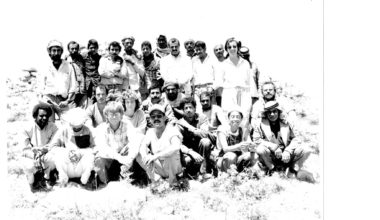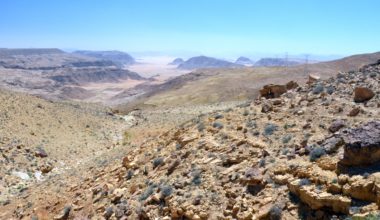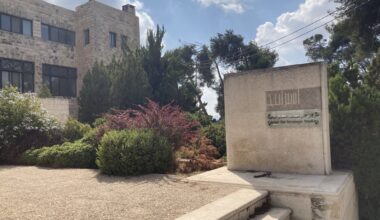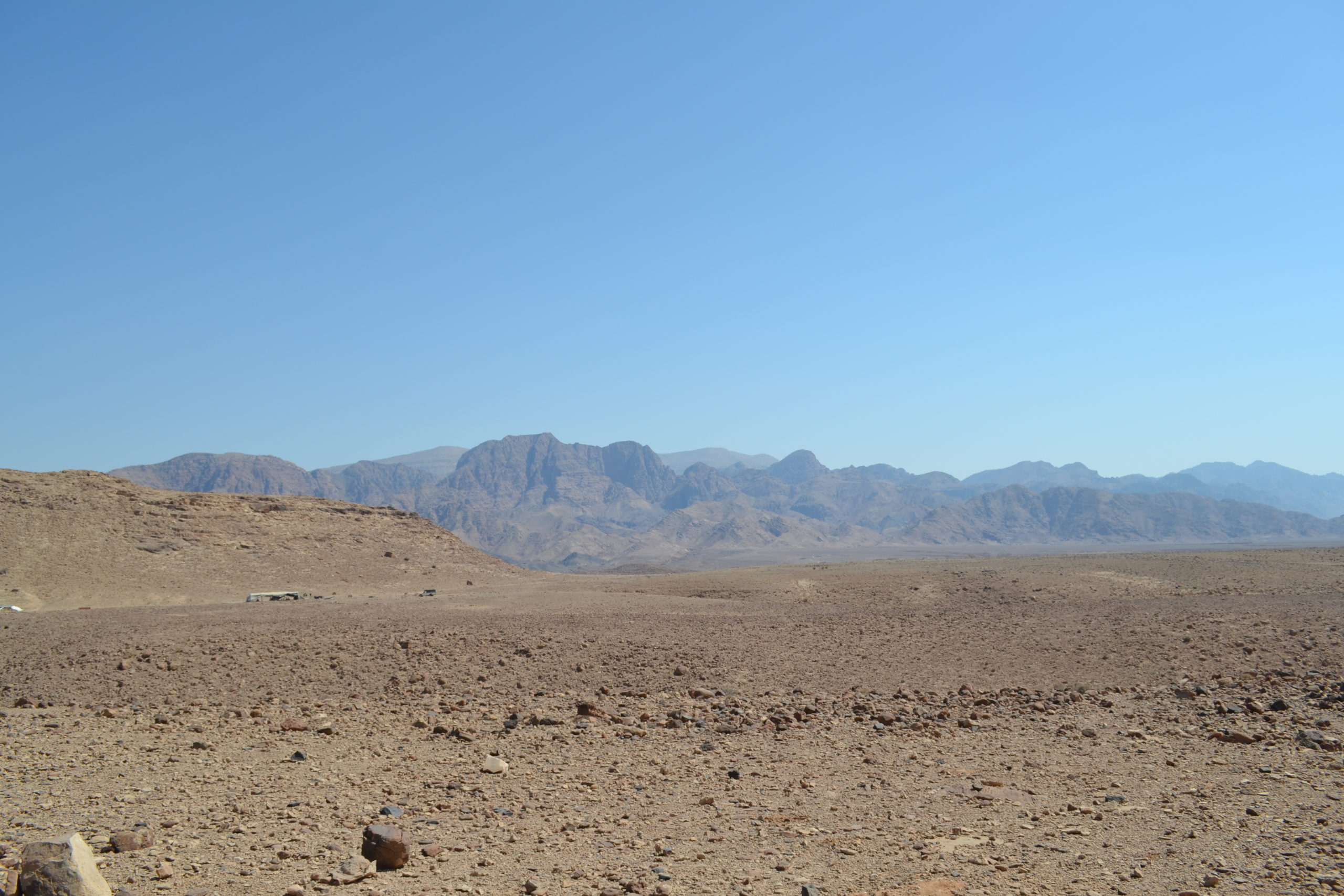
By Andrew Michael Hurely, author and participant of Alta’ir Creative Exchange 2019
As we sit drinking hot sweet tea in the shade of the Beit Al-Sha’ar, our guide, Ibrahim, tells me that I have come to Wadi Faynan on an unusually temperate day for early September. Outside, a breeze gusts and swirls, rattling the tent’s thatch and taking the edge off the afternoon sun. A perfect day for heading up Wadi Ghwayr in search of the stream.
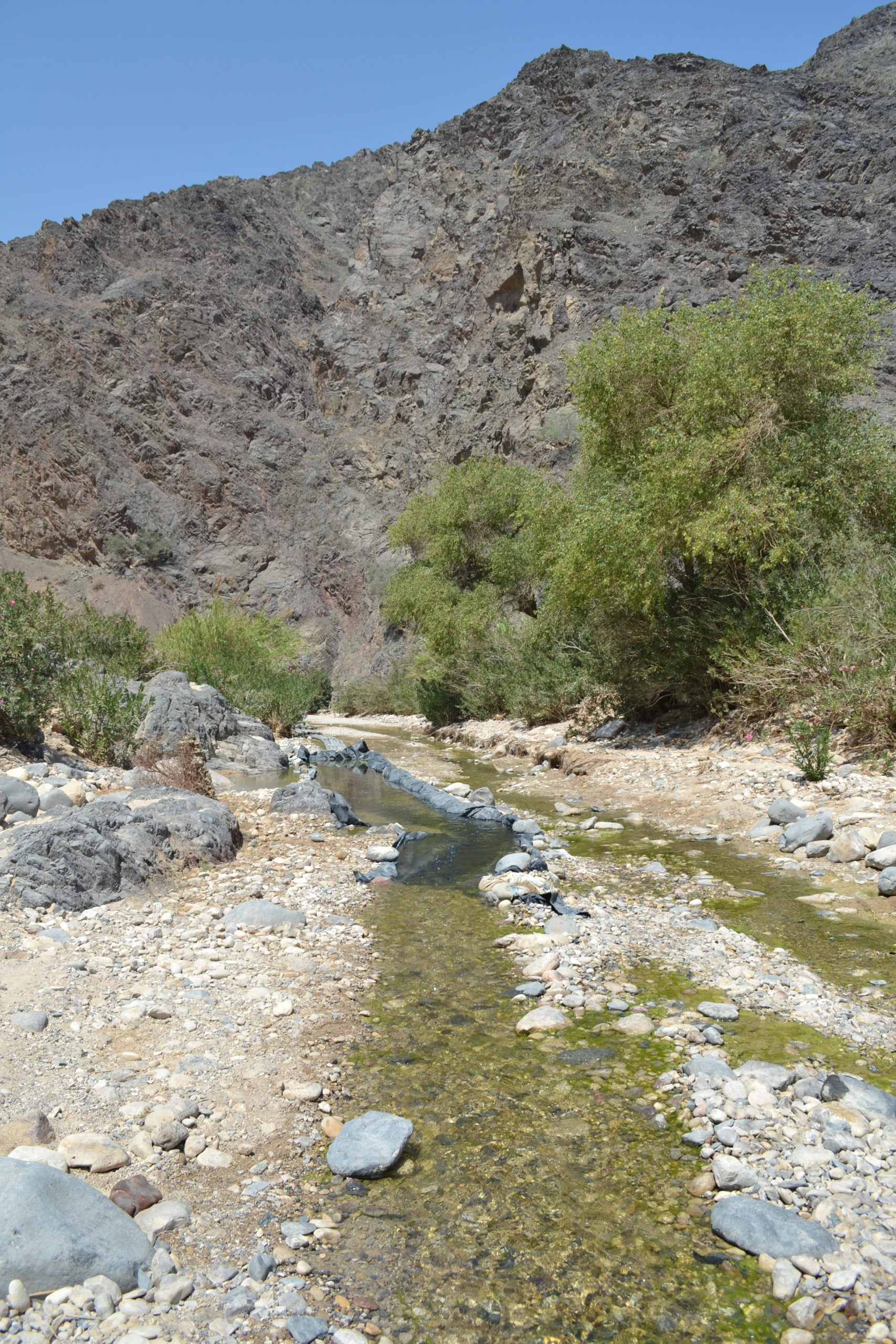
What I love about Jordan is that life here quickly seizes upon whatever chance it has to flourish. Where the snaking irrigation pipes have sprung a leak, the vegetation grows thick and high: there are nodding reeds, the intense pinks of oleander, and the alarming caltropis procera, which produces the poisonous “Devil’s Eggs” – large seed pods like conker shells without the spikes.
Wherever you look here, water very clearly announces its presence. Its passage down the gullies and along the winding edge of the riverbed is marked in a line of green vegetation which seems more vibrant amongst the scree of sand and stone that stretches for miles over the plains to the mountains of Jabal Mubarak.
And, as always, where there is water, there are people. We are riverbank creatures by nature, by necessity. Water has always been our lifeblood. We have always been drawn to it. Although the terrain here is, of course, completely different than it is in the north of England, I can’t help but think of the farming community that I wrote about in my second novel, Devil’s Day. They too live in a valley, they too are trying to survive in what can be a hostile environment and although there might be localised distinctions between the lives of Lancastrian hill farmers and Bedouin shepherds, the basic challenges of living off the land are much the same anywhere. It takes an enormous amount of resilience, which comes not only through hard work and ingenuity but through a connection with the past.
In my novel, the patriarch of the farming hamlet takes great pride in the fact that his family are descendants of the immigrant Norsemen who first settled in the valley centuries earlier – as though in the present day they have inherited some of that initial toughness. He senses the powerful relationship that exists between peoples who have lived in the same place over time. It’s the same here in Wadi Faynan. Up on the promontory at the Neolithic site, the stuff of daily life is littered across the hillside, the flints and remains of grinding stones still here after – what? – nine thousand, ten thousand years. It’s not simply out of historical curiosity that we choose to uncover and keep these relics but because we feel an association with them. It’s the material which enabled us to survive.
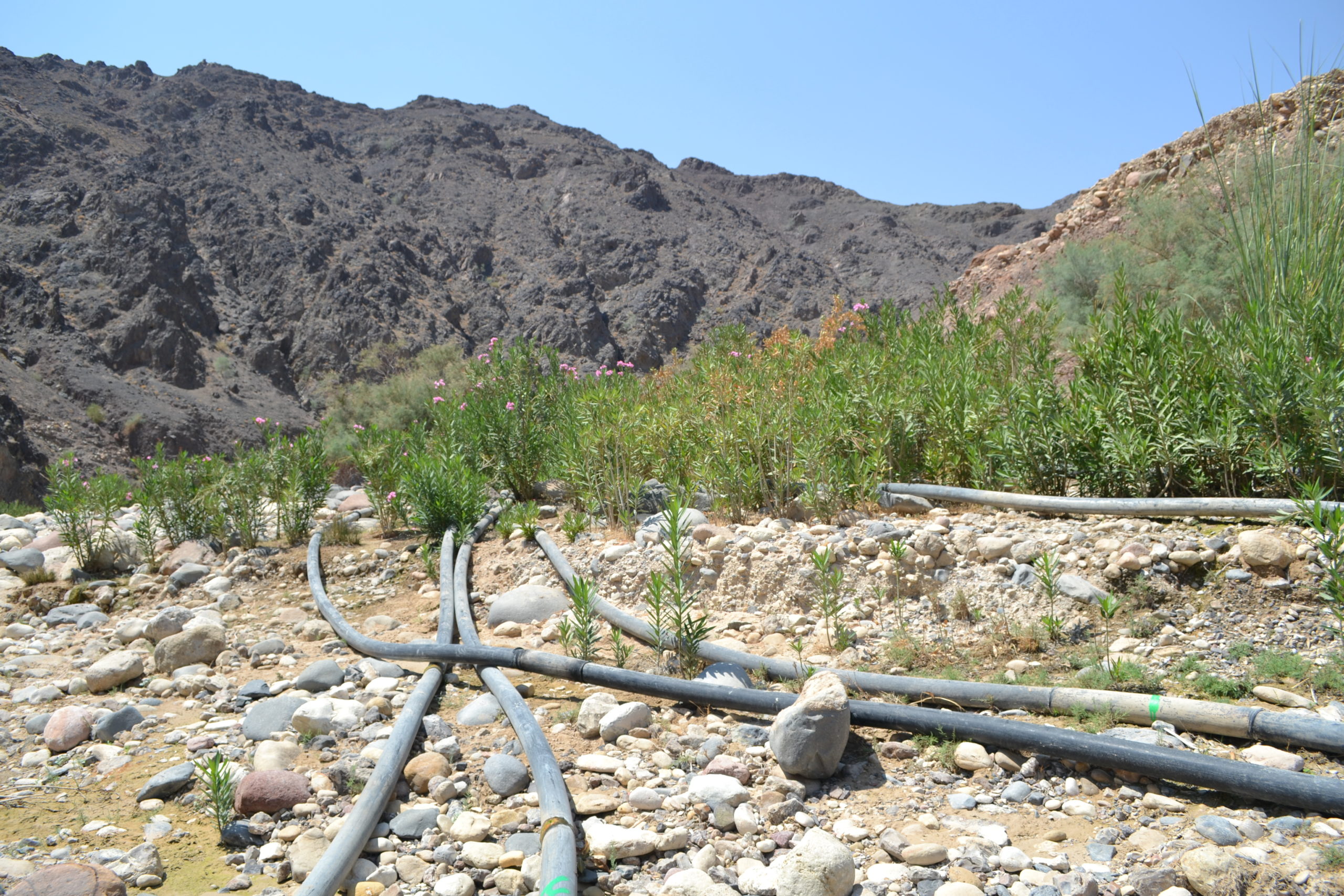
Descending to the valley floor we walk against the flow of the stream, which emerges at first as a warm, shallow trickle, the run-off from the tank which syphons some of the water into the irrigation pipes. Beyond the catchment, under the olive trees, the flow is faster and louder and I take a moment to record its percussion on the rocks, thinking about why it is so compelling a sound, so pleasing to the ear. It’s the folk memory of its importance, perhaps. Its association with our continuation as a species. This valley was one of the routes our distant ancestors took during their migration from Africa to Europe and so to touch the water here is to touch what binds us all. And now the name of the project that’s brought me to Jordan – Alta’ir, the bird, the flying one – makes complete sense. It’s a reminder of our shared aspiration for freedom and flow. From the sky, the bird sees nothing but an open world.
Andrew will be speaking about his experience in Jordan as part of the Alta’ir Creative Exchange along with Jordanian author and participant Kafa Al-Zoubi, at the Durham Book Festival on 12th October. For more information and to download the festival’s programme, click here.
Andrew Michael Hurley is the author of two short story collections, Cages (2006) andd The Unusual Death of Julie Christie (2008), and two novels – The Loney (2015) and Devil’s Day (2017). A third novel, Starve Acre, is due out on the 31st of October this year. The author lives in north-west England with his family and teaches Creative Writing at Manchester Metropolitan University’s Writing School. During the early part of September, he stayed at the CBRL in Amman as part of the Alta’ir creative exchange.
The views expressed by our authors on the CBRL blog are not necessarily endorsed by CBRL, but are commended as contributing to public debate.













